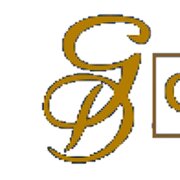Best Sanctions & Export Controls Lawyers in San Fernando
Share your needs with us, get contacted by law firms.
Free. Takes 2 min.
List of the best lawyers in San Fernando, Trinidad and Tobago
About Sanctions & Export Controls Law in San Fernando, Trinidad and Tobago
Sanctions and export controls are legal measures designed to regulate and restrict the movement of goods, technology, and services across national borders for reasons of security, foreign policy, and compliance with international obligations. In San Fernando, Trinidad and Tobago, these laws play a vital role in upholding the country’s commitments under international agreements and in promoting ethical trade practices. Businesses and individuals engaged in international trade need to understand these rules to avoid legal pitfalls and maintain compliance.
Sanctions generally refer to restrictions imposed by Trinidad and Tobago or by the United Nations Security Council that may target countries, entities, or individuals. Export controls govern the export of specific goods and technologies that could have military applications or facilitate unlawful activities. These legal measures are administered and enforced at both the national and international levels.
Why You May Need a Lawyer
Legal guidance is essential in navigating the complexities of sanctions and export controls. You may need a lawyer in San Fernando, Trinidad and Tobago if you find yourself in any of the following situations:
- You are starting or currently running a business involved in cross-border trade.
- Your company deals in controlled or sensitive goods such as dual-use items or technology.
- You have received communication from authorities regarding potential violations.
- You are unsure whether your business activities might be restricted under existing sanctions or export controls.
- You need to apply for export licenses or seek clarification on compliance requirements.
- You face penalties or investigations due to alleged noncompliance with export or sanctions regulations.
- You are partnering or contracting with international entities or individuals from sanctioned jurisdictions.
A lawyer can help you understand your legal obligations, resolve compliance concerns, and represent you should legal proceedings arise.
Local Laws Overview
Trinidad and Tobago’s legal framework incorporates several statutes and regulations pertaining to sanctions and export controls. Key elements of local law include:
- Antiterrorism Act: Controls funding and support for activities that may promote or enable terrorism. Enforcement of targeted financial sanctions against listed entities and individuals is a major element.
- Customs Act: Regulates the movement of goods, including the export and import of items that may be subject to restrictions or prohibitions.
- Firearms Act: Places strict controls on the export and import of weapons, ammunition, and related materials.
- United Nations Security Council Resolutions: Trinidad and Tobago, as a United Nations member, is obligated to implement relevant Security Council sanctions, particularly those relating to embargoed nations or individuals involved in serious crimes such as terrorism or proliferation of weapons of mass destruction.
- Financial Intelligence Unit of Trinidad and Tobago (FIUTT): Oversees compliance with financial and trade sanctions, requiring due diligence, reporting, and recordkeeping from businesses and financial institutions.
Failure to comply with local sanctions and export control laws can result in significant penalties, forfeiture of goods, loss of business licenses, and even criminal prosecution. Staying up to date with changes in the law is crucial, as global events can lead to rapid adjustments in applicable sanctions regimes.
Frequently Asked Questions
What are sanctions in the context of Trinidad and Tobago?
Sanctions are legal restrictions imposed to achieve foreign policy or national security objectives. These may target countries, organizations, or individuals, and can include asset freezes, travel bans, and arms embargoes.
Who enforces export controls in Trinidad and Tobago?
Export controls are primarily enforced by the Customs and Excise Division, with oversight and compliance monitored by various agencies, including the Ministry of National Security and the Financial Intelligence Unit.
Are there specific goods that require an export license?
Yes, items such as firearms, ammunition, dual-use technology, and certain chemicals require a valid export license before they can be legally shipped abroad from Trinidad and Tobago.
What is the role of the Financial Intelligence Unit (FIUTT)?
The FIUTT is responsible for ensuring compliance with financial sanctions, monitoring transactions, and investigating suspicious activities related to money laundering, terrorism financing, and sanctions evasion.
How do I know if I am dealing with a sanctioned country or individual?
You should regularly consult official lists published by the government, the United Nations, or other international authorities for up-to-date information on individuals, companies, or countries subject to sanctions.
Can I be penalized for unintentionally violating sanctions?
Yes, both intentional and unintentional violations can result in penalties. It is your responsibility to have due diligence systems in place to avoid unintentional breaches.
What are the consequences of violating export controls?
Consequences may include fines, seizure or forfeiture of goods, criminal charges, and loss of export privileges for individuals or businesses.
How can a lawyer help with export control compliance?
A lawyer can help by assessing your compliance risks, assisting with license applications, evaluating business relationships or transactions, and representing you during investigations or disputes with authorities.
What steps should my company take to ensure compliance?
Your company should maintain robust internal controls, educate staff on obligations, conduct regular audits, and stay informed about updates to relevant laws and sanctions lists.
Can Trinidad and Tobago impose its own sanctions independent of the United Nations?
Yes, while Trinidad and Tobago often implements UN sanctions, it can also enact domestic sanctions based on national security or foreign policy considerations.
Additional Resources
For further guidance and up-to-date information, you may refer to the following organizations and governmental bodies:
- Ministry of National Security, Trinidad and Tobago
- Customs and Excise Division, Trinidad and Tobago
- Financial Intelligence Unit of Trinidad and Tobago (FIUTT)
- Trinidad and Tobago Chamber of Industry and Commerce
- United Nations Security Council Sanctions Committees
- Central Bank of Trinidad and Tobago (for financial sanctions guidance)
These entities provide publications, notices, and guidelines concerning sanctions and export controls that are essential for businesses and individuals.
Next Steps
If you believe you may be affected by sanctions or export control laws, consider the following steps:
- Document all relevant information about your business activities, imports, and exports.
- Initiate internal compliance reviews to identify potential gaps or risks.
- Seek legal advice as soon as possible, especially if you have received notifications from authorities or are planning new international transactions.
- Consult with local lawyers in San Fernando who specialize in sanctions and export controls to assess your situation and develop a compliance or defense strategy.
- Stay alert to updates in local and international law that may affect your activities.
Taking these steps early can help you navigate the complexities of sanctions and export controls, avoid legal trouble, and ensure your operations are fully compliant with the laws of Trinidad and Tobago.
Lawzana helps you find the best lawyers and law firms in San Fernando through a curated and pre-screened list of qualified legal professionals. Our platform offers rankings and detailed profiles of attorneys and law firms, allowing you to compare based on practice areas, including Sanctions & Export Controls, experience, and client feedback.
Each profile includes a description of the firm's areas of practice, client reviews, team members and partners, year of establishment, spoken languages, office locations, contact information, social media presence, and any published articles or resources. Most firms on our platform speak English and are experienced in both local and international legal matters.
Get a quote from top-rated law firms in San Fernando, Trinidad and Tobago — quickly, securely, and without unnecessary hassle.
Disclaimer:
The information provided on this page is for general informational purposes only and does not constitute legal advice. While we strive to ensure the accuracy and relevance of the content, legal information may change over time, and interpretations of the law can vary. You should always consult with a qualified legal professional for advice specific to your situation.
We disclaim all liability for actions taken or not taken based on the content of this page. If you believe any information is incorrect or outdated, please contact us, and we will review and update it where appropriate.









